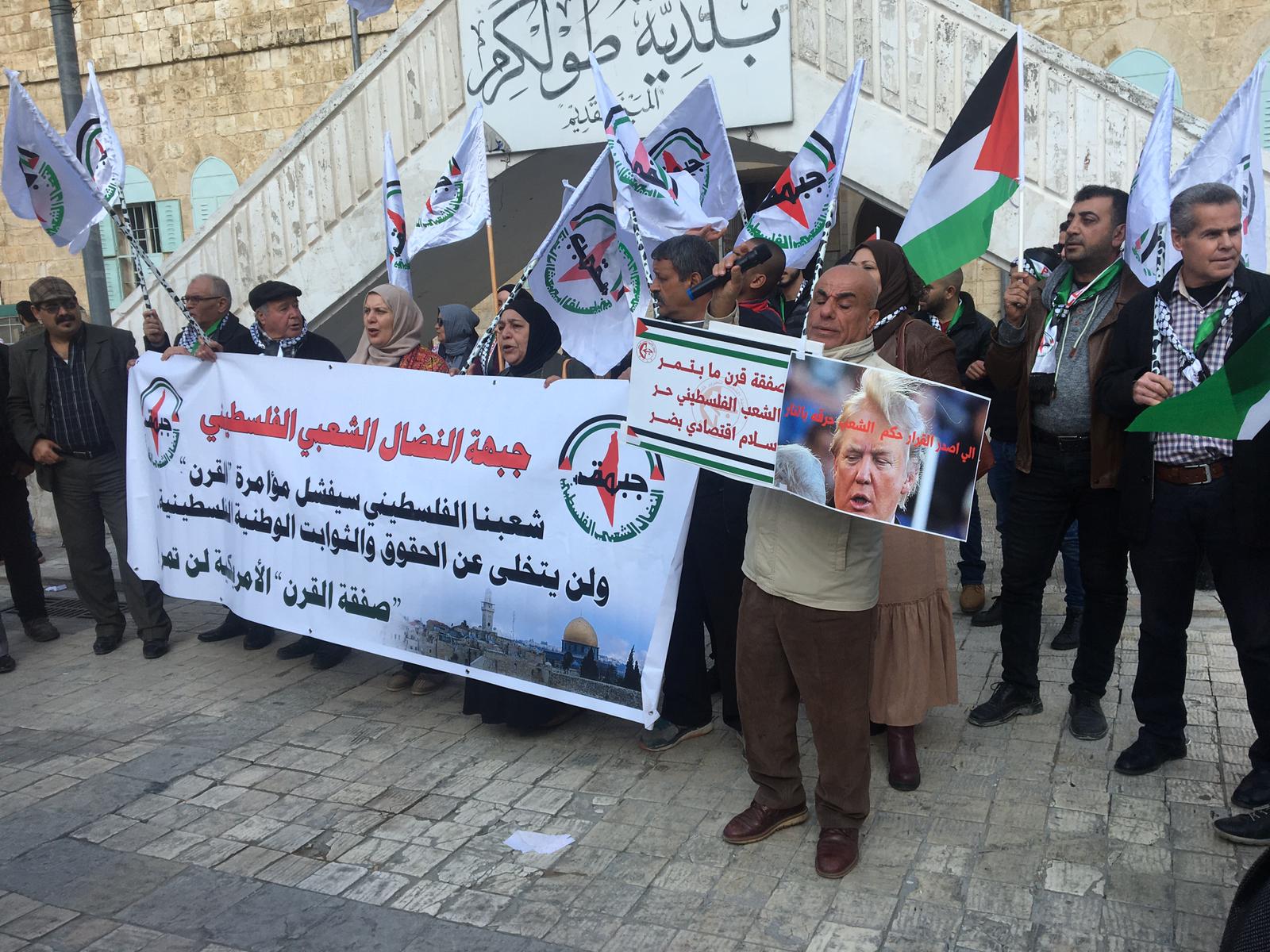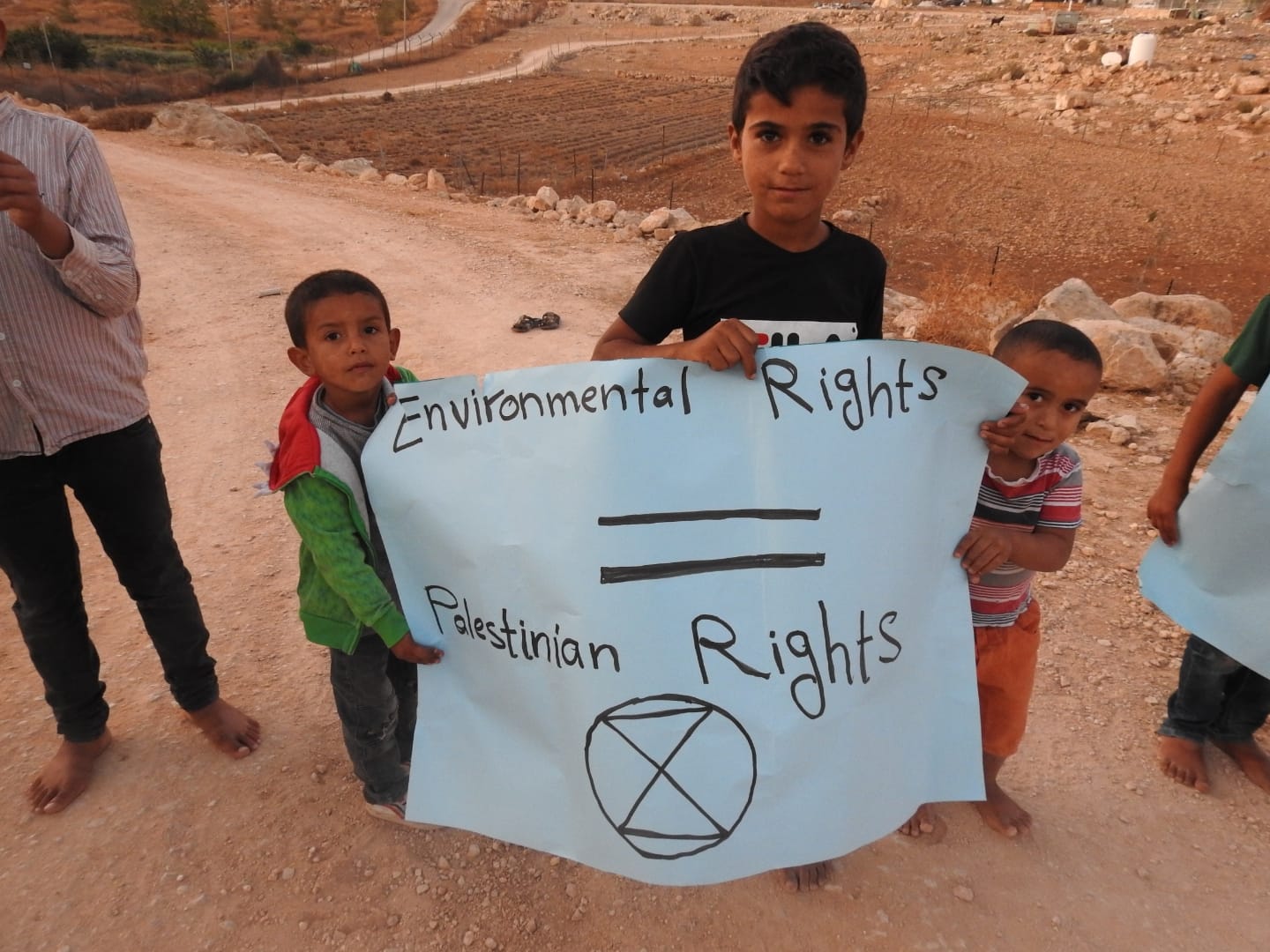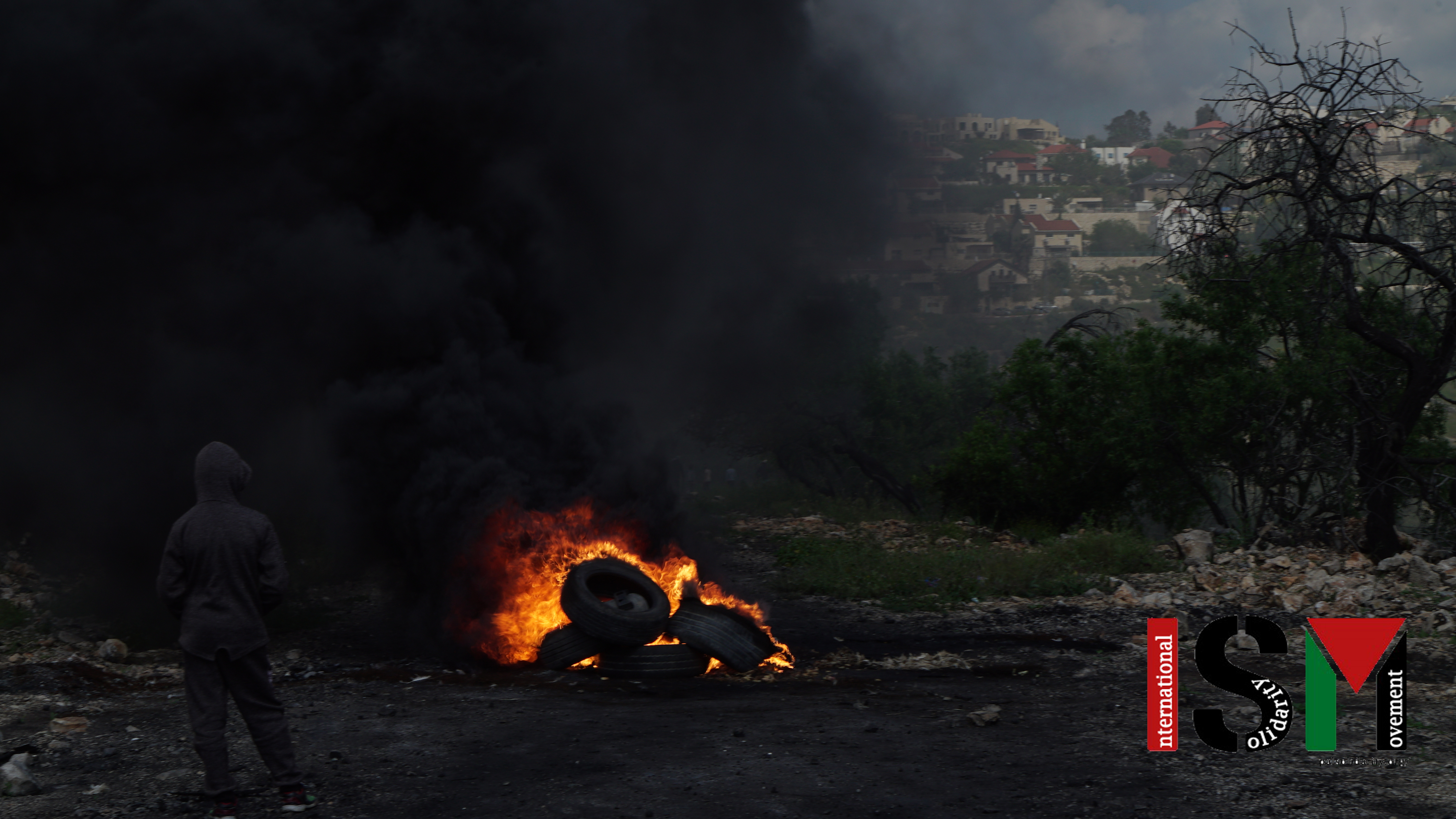Tag: protest
-
Urgent Call out for Volunteers – Palestinians reject the ‘deal of the century’
At a time of heightened aggression against Palestinians by Israeli occupation forces suppressing “Deal of the Century” protests across the West Bank the International Solidarity Movement is issuing an urgent call out for volunteers. What is the ‘Deal of the Century?’ On 28 January 2020 Donald Trump and Benjamin Netanyahu announced their annexation plan…
-
Bedouin kids join global climate strike in Palestine’s first Extinction Rebellion protest
19th October | International Solidarity Movement | Umm al-Khair, South Hebron Hill Bedouin children in the West Bank joined global climate protests yesterday, calling out the Israeli occupation’s role in exacerbating the effects of climate change on Palestinians. Over a dozen protesters from the Bedouin village of Umm al-Khair in the South Hebron Hills, waved…
-
Protesters take the hilltop
April 19, 2019 | International Solidarity Movement | Kafr Qaddum, occupied Palestine Soldiers shoot live ammunition, rubber-coated steel bullets and stun grenades at protesters in the weekly Friday demonstration in Kafr Quaddum. Several Palestinians, a minor and an international were shot by rubber-coated steel bullets and a French international was beaten and arrested by Israeli…



